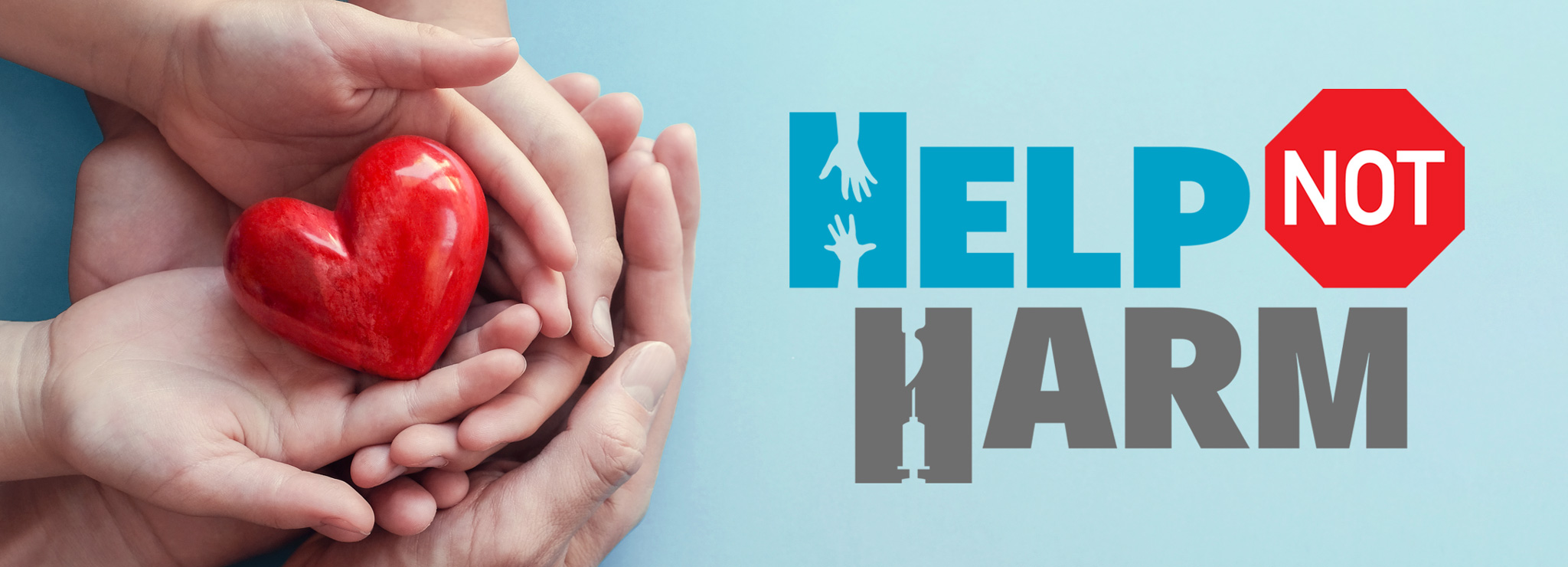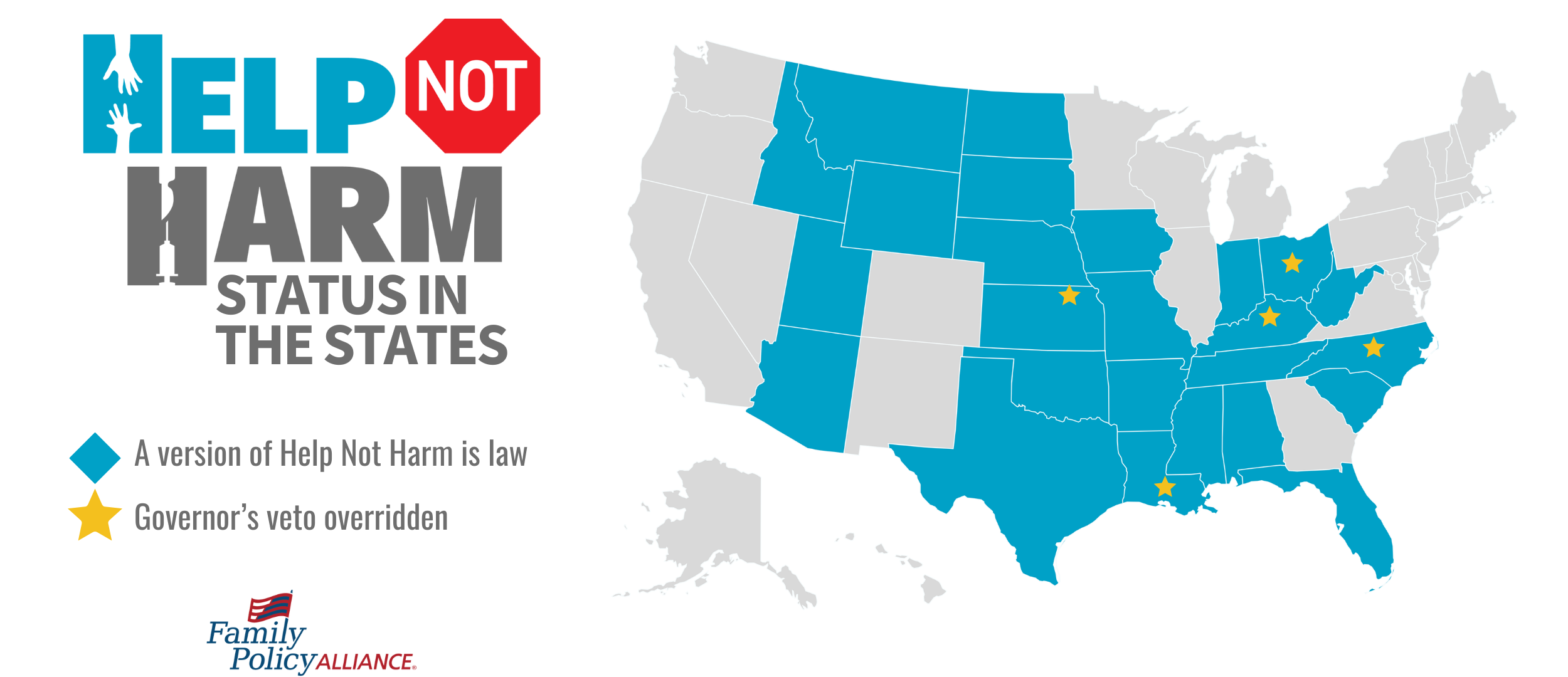Kids are not experiments. When a child is struggling, he or she needs compassionate care – not experimental hormones and surgery.
THE PROBLEM

Today, children who experience confusion or distress about their bodies are increasingly told that the only solution is medical “transition”—a path that can involve puberty blockers, high-dose cross-sex hormones, and irreversible surgeries, often before they are old enough to understand the lifelong consequences.
These interventions can cause permanent harm, including sterilization, loss of sexual function, weakened bones, cardiovascular problems, and lasting emotional trauma, and in many states they can be initiated without parental knowledge or consent.
This is especially alarming given that studies show 80–95% of children would naturally come to accept their biological sex by adulthood if they were not pushed toward medical transition.
THis must stop now.
OUR SOLUTION

Our vision is that every child would get to experience being seen, loved, and cared for as a whole person – not being reduced to the way they feel about their body.
This is why we drafted the first Help Not Harm legislation, back in 2017.
This legislation legally protects minors from harmful gender transition procedures including puberty blockers, cross-sex hormones, and mutilating surgeries.
In 2021, Arkansas became the first state to pass this. Since that time, 24 additional states have followed suit (with a number of them enacting Help Not Harm by overriding governors’ vetoes). Our vision is that this kind of dangerous intervention would become unthinkable across the United States – and at the same time, that hurting children and their parents would be able to receive real help and counseling to help them live as healthy and whole people. That vision is becoming a reality – but there is much more work to be done.
What began in one state has now spread to 25 states and counting. Together, we’re changing the culture — and the law — to put children first.

The Arkansas bill was passed in large part thanks to the work of House bill sponsor Rep. Robin Lundstrum (an alumna of our Statesmen Academy for lawmakers), and our friend Jerry Cox and his team at the Arkansas Family Council. We are grateful for their work. Watch this 2021 video with Family Policy Alliance CEO Craig DeRoche to meet Rep. Lundstrum and Jerry Cox, and to learn more about the SAFE Act (the Arkansas version of the bill) and how it all started!
Our vision is not just for children to be protected from harmful procedures, but for them to actually receive the help they need. We are fighting to make sure they have access to the necessary counseling.
Watch below for our latest update on this:
LATEST DEVELOPMENTS
A Landmark Win for Protecting Children
Supreme Court Upholds Help Not Harm Laws
In a historic 6–3 decision, the U.S. Supreme Court ruled that Tennessee and Kentucky’s Help Not Harm laws are constitutional — affirming that states have the right and duty to protect children from irreversible medical harm.
Family Policy Alliance drafted the first Help Not Harm law in 2017. Since then, 25 states have passed similar protections thanks to our network of Family Policy Councils.
This decision sends a powerful message:
Children deserve real help — not harm.
President Trump Signs Executive Order
On January 28th, 2025, President Donald Trump signed an executive order Entitled, “PROTECTING CHILDREN FROM CHEMICAL AND SURGICAL MUTILATION," aiming to protect children from irreversibly harmful chemical and surgical mutilation as a vain attempt to treat gender dysphoria. It does this by directing the removal of federal funding from any institution performing these procedures on gender dysphoric children, among other mandates for Executive Branch agencies. You can read the full text of the order here.
The executive order also calls for a federal Help Not Harm bill. FPA has been working with Congressional representatives to achieve this goal for years, and we will continue these efforts bolstered by this public endorsement from President Trump.

HELP US PROTECT CHILDREN!

Every day, we are working with allies at the national and state levels to protect children from dangerous transgender interventions. The momentum is with our movement and we need to push forward to protect more children. Twenty states is an impressive milestone, but with thirty more to go there is much more work to be done and we need your help!
Will you partner with us?
Every amount, whether $100, $50, or even $25, will make a difference...
Frequently Asked Questions About Gender Dysphoria and Minor Transition
Answers reviewed and endorsed by the Christian Medical & Dental Associations
Where to begin? There are at least three key reasons we disagree:
- “Transitioning” often ignores underlying causes of or comorbidities to gender dysphoria. For example, a child may have suffered abuse or had a strained relationship with a parent, and that ultimately contributed to them desiring to transition. That same source may have led to other mental health struggles, as well. Transition doesn’t treat that trauma that caused the struggle in the first place. It doesn’t treat the mental health comorbidities (depression, anxiety, etc.). It provides hormones and maybe surgery. That’s not a treatment: that’s a bill of goods.
- The organizations pushing transition as a form of treatment do not base these recommendations in solid science. Instead, they’re based on ideology. This is a rare area of medicine where the doctor is expected to affirm the patient’s self-diagnosis and soon thereafter put them on their chosen treatment plan. For further reading on this topic, we recommend Abigail Shrier’s book, Irreversible Damage.
- There has not been adequate research on the use of puberty blockers and cross sex hormones. And, what we do know is concerning (see question 2 below).
It’s a half-truth at best. For starters, puberty blockers are being used off-label: they were designed to briefly halt precocious puberty in very young children, not stop the natural progression of puberty in adolescents. Moreover, in at least one study, nearly 100% of children who started puberty blockers with the possibility of cross-sex hormones actually went on cross-sex hormones. So, while it might be possible to stop puberty blockers (and we think that those who are on them SHOULD stop their use), the reality is that children are pushed to “take the next step” and go on cross-sex hormones. It’s a one-way street.
We also have concerns about the long-term damage of both puberty blockers and cross-sex hormones. Most people are aware that the adolescent years are associated with the final growth spurt for both boys and girls. There is some preliminary evidence that delaying puberty may decrease the growth spurt and thus limit the height the person would have otherwise achieved. Another concern is the increase in incidence of osteoporosis later in life. The time in our lives when the greatest concentration of calcium is put into our bones is during adolescence. Stopping puberty will stop that process and there is no evidence that the normal calcium deposition is regained once puberty is re-started.
For those who go on to cross-sex hormones, side effects relate to changes in the body’s secondary sex characteristics. Once these effects begin, there is no reversing them. For instance, girls taking testosterone will notice a deepening voice and increased hair growth after a few months. These changes are permanent. The changes become more pronounced with the length of use of the cross-sex hormones. Every person is different as to how quickly the changes occur.
First off, it’s important to remember that very young children are still just beginning to understand the concept of sex differentiation, as well as their sense of self. To presume that a child this young knows for certain that they want to live as the opposite sex – and eventually pursue medical changes to that effect – is deeply concerning. It is ascribing adult thought processes to young children who are just beginning to understand basic things about themselves and their surroundings. Children are far from ready (and capable) to consent to these sorts of life-altering decisions, and we should not expect them to make such decisions.
It’s important to remember that many children don’t necessarily enjoy the same things as other children of the same sex, and may even prefer activities of the opposite sex. For example, a young girl may enjoy being outside rather than playing with dolls. She may become known as a tom-boy. This is normal and transitory – and very different than true gender dysphoria.
However, there are cases where a young child will truly suffer from gender dysphoria. In these cases, there are at least two important things to remember. First, 80 to 95 percent of children struggling to accept their birth sex will come to reconcile with it by adulthood – provided, of course, that they aren’t pushed to “transition.” Many of these children don’t need any intervention at all. However, for those that do, general supportive talk therapy can be an excellent option.
Thankfully, it is often the case that a minor (under 18) will not get a referral for a transgender surgery. However, such cases do exist. There are places in the United States that will perform these kinds of surgeries for minors in certain circumstances. That is a tragedy, and should not be the case. Not only are the surgeries themselves incredibly harmful, but minors CANNOT provide meaningful informed consent for these kinds of life-altering decisions.
Even in places where surgeries for minors are not occurring, we think it is important to proactively prevent them. No minor should ever be subjected to this politicized medicine, and where we can we hope to stop the problem before it starts.
All of the studies that purport to show that suicide is lessened by treatment are either flawed in several ways or have been debunked. So, there is no solid data that treatment with either puberty blockers, cross-sex hormones, or surgery reduces the risk of suicide. In fact, there might be growing evidence that those things actually increase the risk.
On the flip side, we know that many patients with gender dysphoria also suffer in other ways with their mental health. As we stated above, we cannot ignore those comorbidities and the role they play in overall mental health outcomes and suicide. Both gender dysphoria AND its comorbidities can be successfully treated with supportive emotional and psychological therapy. Sadly, 20 states have banned this kind of basic talk therapy, casting it as “conversion therapy” – a misnomer, as no such therapy exists among legitimate professionals. Talk therapy should be widely available to children who struggle to embrace their biological sex. Banning talk therapy truly is denying children access to critical mental health care.
There is no credible study showing documented differences within the brain to the point that a CAT scan, MRI, or PET scan of the brain can verify that a person is transgender. There is lots of individual variation within these scans. Someone may have something in common with a “typical” member of the opposite sex – that does not mean that they are the opposite sex. Every brain is unique.
For further reading on this and related topics, we recommend Ryan Anderson’s book When Harry Became Sally.
Intersex disorders – which are exceedingly rare – differ from a person identifying as transgender in that intersex disorders are medically verifiable by tests, whereas identifying as transgender is something that’s simply self-asserted. Intersex disorders are true medical problems that at times may be life-threatening. Contrary to some faulty assertions, intersex disorders are not proof of a gender spectrum. Rather they are disorders that affect an individual’s secondary sex characteristics and that require accepted medical (and sometimes surgical) treatment which has been developed over the past several decades.
Struggling with gender dysphoria can absolutely be serious, too – that’s why we care so much. However, gender dysphoria is distinct from “identifying as transgender” – and treatment for gender dysphoria is psychological in nature, not medical.
Under laws like Arkansas’s SAFE Act (Help Not Harm), children are protected from puberty blockers and cross-sex hormones. That includes minors who have already used them. That is a good thing: no minor should be subjected to this as a form of “treatment.” The discontinuation of puberty blockers and cross-sex hormones should be conducted under the care of a licensed physician. There appears to be some evidence that slowly weaning off cross-sex hormones will lessen the emotional liability that often occurs with large hormonal swings.
LEARN MORE
Have questions? Want to learn more about positive solutions on this issue? Check out these resources:

Stay connected with email updates
Unleash your citizenship! Get news, commentary and alerts delivered right to your inbox.
